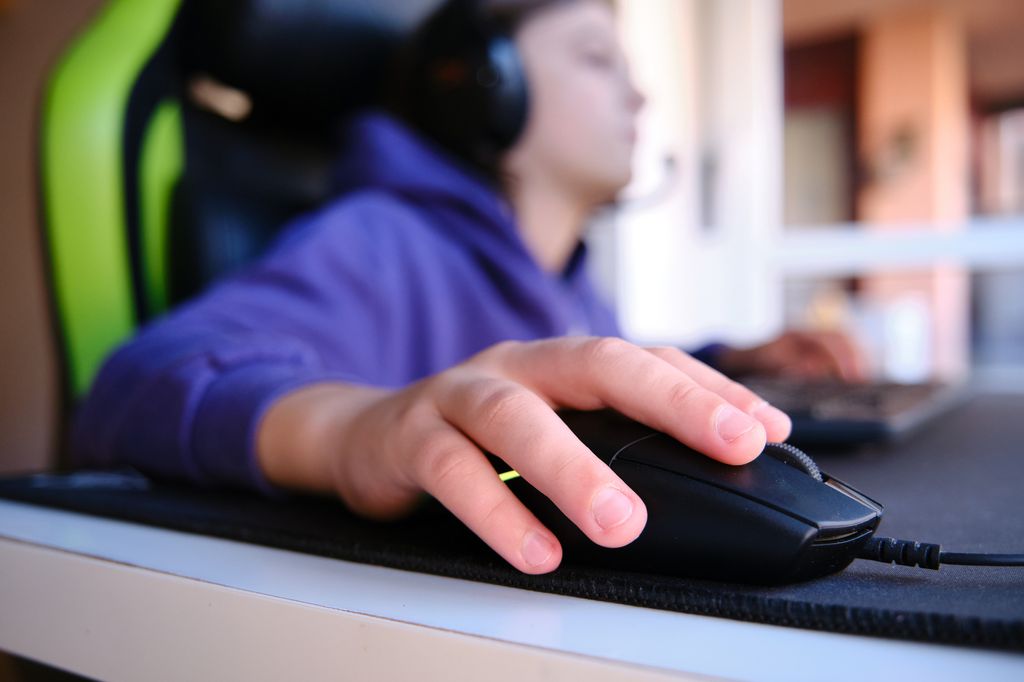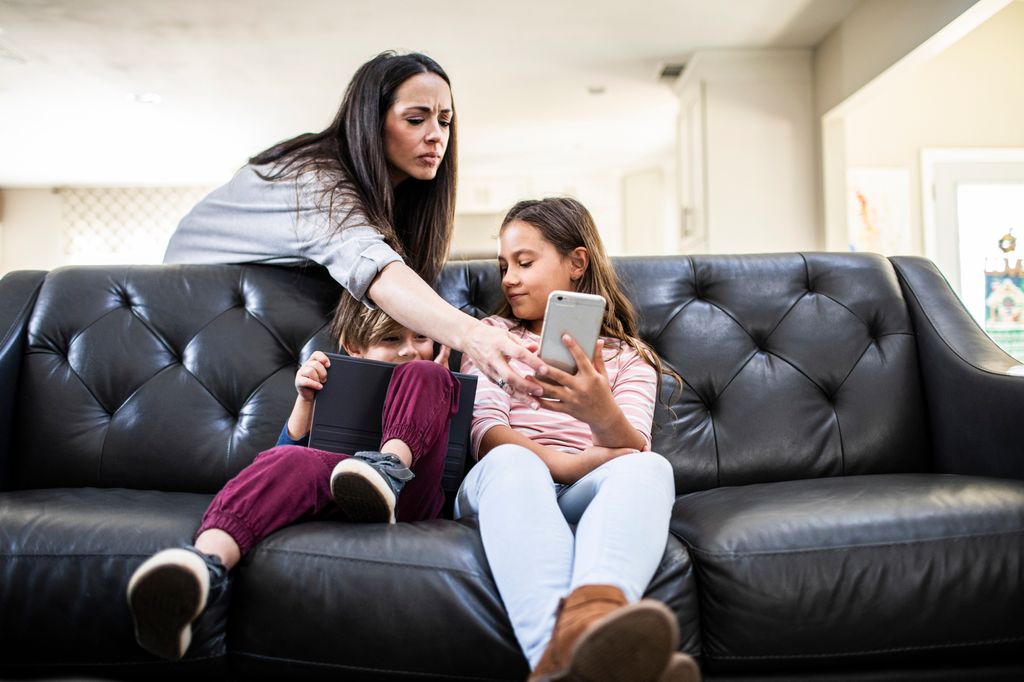Teacher Sam Lundrigan was associated with a brand-new research on this stunning problem, currently she shares her suggestions for moms and dads
How to help children handle online requests for indecent images
Teacher Sam Lundrigan was associated with a brand-new research on this stunning problem, currently she shares her suggestions for moms and dads
How to efficiently maintain their children risk-free online is a concern several moms and dads encounter. A lot of seem like they function as difficult as they can to shield their children from the poor worldwide in your home which their children’s educators do the very same at institution. And yet, net security proceeds to be a minefield, and frequently a resource of problem for moms and dads when it comes to enabling their children liberty with online systems.
A brand-new research was launched previously today that highlighted one of the most efficient methods to help children handle online requests for indecent images and clarified exceptionally worrying stats around the variety of youths being come close to for indecent images.
The study was appointed by the Office and performed by professionals at Anglia Ruskin College, making use of information from the Web Watch Structure (IWF) that concentrates on cis-gendered women matured in between 11 and 13 years of ages. It located that “from 2020 to 2021, there was a 168 percent increase in the proportion of webpages displaying self-generated imagery found by the IWF. More than 80 percent of those webpages (147,188 out of 182,281) included images and videos of girls aged from 11 to 13 years old.”
It is necessary to note that this does not imply that cis-gendered children, transgender or non-binary children, aren’t in danger, in addition to children of various other ages. The essential suggestions shared can be made use of by moms and dads to sustain any kind of kid.
This can be a hard and psychological subject for moms and dads to bring up with theirchildren HELLO! took a seat with Teacher Sam Lundrigan of Anglia Ruskin College to talk about the searchings for and listen to how moms and dads can sustain their children around this severe problem.
When managing this problem with your children, the very first point Teacher Lundrigan explains that moms and dads need to keep in mind is how children’s lives are so linked with the online globe. “The starting point is for us as parents to understand that children do live their lives differently to we did growing up and that actually we need to be respectful of the fact that there are really positive social relationships and communications with others, understanding of the world comes from being online.”
She states moms and dads ought to “ackowledge the benefit that online space can offer young people.” Nevertheless, the flipside, she states, is “that we need to look at it to provide the knowledge and skills they need to navigate these spaces so teaching them digital literacy – a lot of that should come from schools.” The teacher states that these discussions ought to be occurring with children more youthful than 11 which children as young as 7 years of ages are progressively showing up in indecent video clips.
Teacher Lundrigan states that it is necessary to produce open interaction with your kid around this problem and to guarantee your kid feels they can talk to you if they are ever before unpleasant with something they see or engage with online, which moms and dads do not look for to regulate theirchildren “It’s about not going straight for the controlling measures like taking the phone away or only allowing phone to be used in the presence of a parent,” she states. “There is definitely a place for monitoring, but not controlling. It’s about trust and empowerment. Especially with young girls. I think young girls grow up often being blamed for things and having to take responsibility for stuff.”
She proceeds: “We need to empower young girls to have the confidence to use the internet and also empower them to be able to say no and when they see something or feel something that they are uncomfortable with, be empowered to say no and do something about it whether that is blocking the content itself, reporting it to whoever they are comfortable reporting it to.”
The professional states that it is necessary that moms and dads attempt to not respond with temper if their kid does come to them and state that they have actually sent out an indecent picture to a persononline “If there is a disclosure, it needs to be in a really supportive, trauma-informed way where whoever it being disclosed to, there is no blame, there is no judgment, there is just support,” she states.”With true fear and concern about what might have happened, parents might respond by saying ‘Why did you do that? That’s such a silly thing to do. Why did you let yourself get in that situation?’ but that we really don’t want that because that will just shut children down and lines of communication are really important.”
She offers suggestions for taking care of those discussions sensitively with your kid – “Prioritise positive talking over controlling measures. Make sure conversations are meaningful or open, non-judgmental, and normalised. The biggest thing we found about the importance of fostering open and positive communication between girls and their parents… parents’ attempts to talk to their child about the topic are very unlikely to backfire even if the talk doesn’t go well.”
She describes that also if a moms and dad does not seem like a discussion that looks for to educate the kid regarding claiming no to and obstructing a wrongdoer and reporting it to a relied on grownup does not goes to strategy, if the kid is humiliated to speak about it or hopeless, that kid will certainly still recognize that if there is ever before anything they experience online that makes them really feel unpleasant, they have a grown-up they can rely on. “There is no right time to talk to your child about something like this but it’s about giving the space for those conversations,” the teacher includes.
If a youngster does react to a wrongdoer online by sending out an indecent picture of themselves, Teacher Lundrigan likewise highlights that their institution has a duty to sustain that kid and their family members. “Depending on the disclosure, if the child discloses to the school and this is not another child in the school…the school has a safeguarding responsibility that will kick in and the parents would be involved,” she describes. “Once the disclosure is made it is about proceeding in a supportive and trauma-informed way so that whatever happens after that, if the police get involved, that the child and the child’s needs are right at the centre.”
She proceeds: “There could easily be a knee-jerk reaction where you have to call the police, and I’m not saying they shouldn’t, but it’s about taking that child on the journey.” Component of that trip is guaranteeing that moms and dads know the IWF’s ‘record eliminate’ feature. Once it is reported to the IWF that a youngster has actually sent out an indecent picture of themselves, the IWF will certainly action in and job to eliminate it from the net. The teacher advises us of the value of this device as”every time their image is shared, it is like being victimised all over again”
Teacher Lundrigan’s vital item of suggestions that moms and dads ought to hand down to their children in regards to taking care of a demand to begin with is this – “If you get a request from anyone for nude imagery or video, say no, block them, and tell somebody, whoever you feel comfortable telling.”
“If children do do that [send images] and it does happen, this is not their fault. These offenders are really clever, this is what motivates them and they are so good at coercing and grooming young people. So if it does happen the absolute important thing to know is this is not your fault,” she states, something moms and dads ought to advise their children of if they remain in this scenario.
The teacher states there is a wide range of expert-informed sources readily available to children and moms and dads for managing this problem as it uses to them that can be located listed below – whether that be as a preventative action or in feedback to an individual experience. “The bigger issue here is we need to be talking about these issues far more freely as a society. Child sexual abuse really is the last taboo,” she states advising us that education and learning and discussion around the problem at institution and in your home is an important preventative action.
DISCOVER: Fifty Percent of UK children experience intimidation at institution– right here’s how to help






























![It was all going well until… | Squid Game 2 | Netflix [ENG SUB] It was all going well until… | Squid Game 2 | Netflix [ENG SUB]](https://thehollywoodpremiere.com/wp-content/uploads/2025/01/It-was-all-going-well-until-Squid-Game-2-120x86.jpg)








